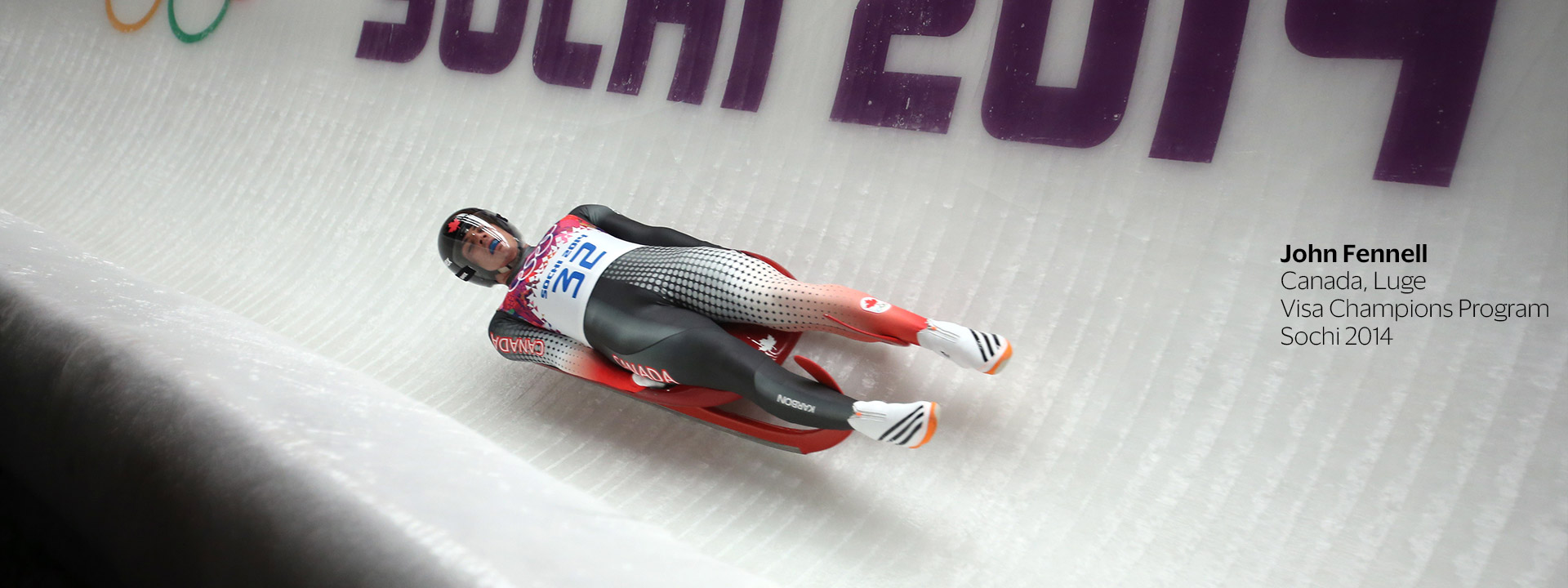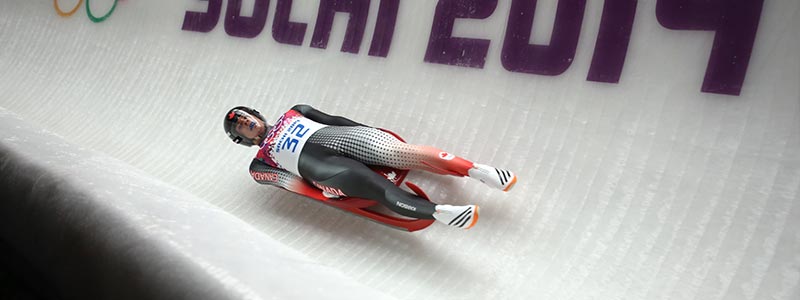

With athletes sledding down an icy course at speeds of up to 90 mph — face up, feet first — luge is the fastest sport in the Olympic Winter Games. But it isn’t accessible to most, given the mile-long icy track requirement.
“I grew up near the Olympic Park in Calgary, Canada and had the opportunity to try all kinds of Olympic sports that people typically wouldn't,” said Olympian John Fennell, who tried luge for the first time at just 10 years old.
“Around the time I was 16, I started picking up more momentum and I was competing internationally,” he said.
The Olympic Winter Games Sochi 2014 still seemed like a bit of a stretch, as John had only recently competed at the senior level. But one day, John’s coach pulled him aside and said “I just want to be very clear with you: This isn't impossible. You do have the opportunity to do this,” John recalled.
That same year, John finished one of the best luge races of his career, earning third in the under-23 division at a major global competition in Whistler, BC. — an important step toward booking his ticket for Sochi.
A story to tell
One year before the torch was lit at the Olympic Winter Games Sochi 2014, Russia’s parliament passed a federal law banning gay “propaganda.” The law made it illegal to equate straight and gay relationships, resulting in fines, including “special fines” for foreigners.
“I hadn’t come out yet,” said John, now manager of corporate strategy at Visa.
His dream to one day go to the Olympic Winter Games was becoming a reality, but with the news coming out of Sochi and a reported rise in anti-gay violence, John was facing something very personal on a very public stage.
“Being on that level of a world stage and having to figure that out at the same time was really challenging for me and a really big distraction,” said John, who now lives in San Francisco.
Luge athletes competed on day one of the Olympic Winter Games in Sochi. Mics, cameras, interviews – the literal spotlight – brought a whole new level of visibility compared to other high-caliber events in which John had competed. The pressure was on.
“I had a story to tell. It impacted my athletic performance and my ability to feel accepted,” said John. “It was made very clear that I wasn’t wanted there.”
After competing in the men’s singles competition, at age 19, John came out to the media, even before his family and friends.
“It was an interesting point in time in sports culture where this topic wasn’t being discussed very much. It was a much bigger deal for athletes to come out,” he recalled, now a decade later, expressing how proud he was to open the discussion about the challenges LGBTQ+ athletes face in high-performance sport.
John took comfort in the fact that reactions were positive from his community of friends, family and teammates.
“More impactful were the reactions I got from other athletes who were dealing with similar situations and just being able to affect positive change,” he said.
“If I can help another athlete feel more comfortable and help them realize they have a place in sport, I’m more than happy to use my voice to do that.”
Back on the ice
Returning home, John was invited to speak at high schools and universities about his Olympic experience.
But he wasn’t ready to retire. “I knew I could achieve more. I needed to take full responsibility for my success and make the changes to take my training to the next level,” John said.
As a dual citizen born in the United States, John moved to Lake Placid, New York to train with Team USA, which he found had a more competitive program, and make a second go at the Olympic Games, all while bartending and working in a sporting goods store to make ends meet.
John qualified for the national team, a pool from which three athletes would be selected to represent Team USA at the Olympic Winter Games Pyeongchang 2018. After a series of five races around the globe, John was part of a three-way tie for the final spot. During that tie-breaker race, he hit a wall causing his sled to break halfway down the track, bringing a heartbreaking end to his second Olympic run.
“I didn’t know what was going to come next,” he said, “and I needed a year to recenter and figure out what mattered most.”
A high-performance mindset
John returned to Canada to finish his business degree at Royal Roads University in Victoria, BC.
“Eventually, I decided I had achieved something some people only dream of and I was ready for my next challenge.” Degree in hand, John started his search for business jobs when he came upon the Visa Champions program (formerly known as the Olympians and Paralympians Business Development Program) in San Francisco, a two-year rotational program designed for retiring athletes.
“A lot of athletes, when they face retirement, don’t necessarily have a lot of career options because they spent so long focusing on their sport,” said John. “Coming out of sports, I had a very clear idea of what I wanted to do: I wanted to go into Olympic Games sponsorship and marketing. But I didn’t have any work experience.”
The Visa Champions program offered a test-and-learn experience that allowed him to try new areas, test his strengths and lean into his interests. At the end of the two years, John found himself better suited to a more analytical role than the marketing role he originally sought.
“There are so many opportunities within Visa,” he said. “This is a company where you can run as fast and as hard as you want. I've seen talented young people make significant career moves, and I think that's because this company values high performance. And ultimately that's what we get as athletes coming out of sport: a high-performance mindset.”